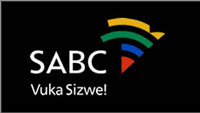
Top stories



ESG & Sustainability#BudgetSpeech2026: SRD grant unchanged, other Sassa social grants see hike
35 minutes


ESG & SustainabilitySouth Africa’s carbon tax should stay: climate scientists explain why
Britta Rennkamp et al. 2 hours

More news




















“Yes, to some extent the SABC is biased against certain people, especially the smaller parties and women. At least 85% of election coverage goes to the big guns, and the rest is given to smaller parties. Besides, women are not getting as much coverage as men, which is also problematic,” said William Bird, director of Media Monitoring Africa (MMA).
“Diversity of views is key to building a well-informed society and making an informed choice, but we also have to define what bias means in this context. If you say something positive about a leader or candidate of a certain political party, that doesn't mean you are biased against others.”
“They are following the events as they unfold but I don't think that they are doing it in the perspective of the voter.”
Wits University Caxton Chair of Journalism Prof Anton Harber said the SABC is seen to have been captured by the ruling party - a situation he believes is caused by the ANC's deployment of its cadres onto the public broadcaster.
“Its election coverage is highly inadequate. It should be probing and questioning political parties' policies and giving us an in-depth coverage on candidates and their agendas. What we see on TV is not enough for people to understand policy.”
The SABC board was represented at the public debate by one of its members, Bheki Khumalo, who is the chairman of SABC News Committee, a diehard member of the ANC and former President Thabo Mbeki's spokesperson. Critics say Khumalo was sent to Auckland Park to act as a spin-doctor and the ‘eyes and ears' of the party.
However, while openly admitting his ANC membership, Khumalo flatly denied that he is a spin-doctor, swearing that he never interfered in the SABC editorial news policy.
“I am a member of the ANC and I am not going anywhere, but when I go to exercise my duties at the SABC board, I leave my membership behind. We are not spin-doctoring but the government is trying hard to explain things to people in a certain way. I would lose my integrity if I were to interfere in the news programmes and act as a ‘party cover',” Khumalo said emotionally.
Kate Skinner, Save our SABC Coalition spokesperson, lashed out at the SABC's articles of association that vested the minister of communications (an ANC member) with powers to appoint the CEO and the director of news (editor-in-chief), saying that this simply triggers issues of bias.
She said: “These appointments give the perception that the SABC is biased. The coalition's view is to change these articles and take away the minister's appointment power if we are to stop that bias.”
Furthermore, Skinner deplored the funding model of the SABC, which she believes automatically creates problems of bias.
Apart from getting its revenues from advertising and TV licences fees, the SABC also gets funds from the ANC-led government.
Prof Harber suggested that the SABC appoint independent and apolitical news editors to deal with all editorial matters, including complaints of bias.
The debate was facilitated by Prof Tawana Kupe, Dean of the Faculty of Humanities.
